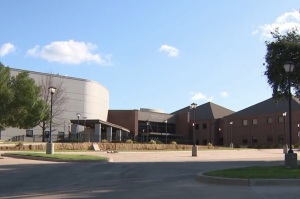California launches $1M website informing minors, out-of-state women how to get abortions

California launched a $1 million website last week as part of the state's efforts to strengthen abortion access through a $200 million budget package funded by taxpayers, part of Gov. Gavin Newsom's vow for the state to serve as a sanctuary for women seeking abortions.
The website offers residents and non-residents information about abortion facility locations, how to access abortion pills, financial help and assistance with traveling for an abortion.
It also instructs minors that California law allows them to "independently consent to their own abortion care" despite any objections from their parents. The website links to another website called TeenHealthRights.org, which tells minors they "do not need your parents' or caregivers' permission to get an abortion if you are under 18" and that it is their "choice whether to tell your parents about it if you do get an abortion."
The state's website also informs undocumented migrants seeking an abortion that they may be able to obtain California Medicaid coverage for the procedure.
"Abortion is legal, safe and accessible here in California – whether or not you live here, know that we have your back," Newsom said in a statement. "As Republican states continue rolling back fundamental civil rights and even try to prevent people from accessing information online or crossing state lines for care, you're welcome here in California and we'll continue to fight like hell for you."
The site explains the different types of abortions and contains a map of 166 facilities in the state. It tells people outside of California who may be unable to visit a clinic that they may be able to obtain the pills for a chemical abortion by mail.
Women who undergo a chemical abortion are typically given two drugs, mifepristone (RU-486) and misoprostol. The first pill blocks the effects of the natural hormone progesterone while the second induces contractions and expels the unborn from the woman's body.
Last year, the Food and Drug Administration lifted in-person dispensing requirements for the abortion pill, enabling women to obtain it by mail without seeing a doctor. The FDA had previously suspended in-person requirements during the coronavirus pandemic but made the decision permanent last year.
Since the U.S. Supreme Court overturned Roe v. Wade in June, allowing states to once again restrict abortion, California has been working to increase access to the procedure.
Earlier this month, the state passed over a dozen bills dubbed "historic" by the national media as California furthered its efforts to become a "reproductive freedom" state. Newsom is expected to sign the bills into law.
While abortion advocates praised the passage of the bills, opponents argue that the bills go too far, claiming that they will "erase" the notion of an illegal abortion.
Mary Rose Short, director of outreach for the pro-life advocacy group California Right to Life, told The Christian Post earlier this month that she believes the California legislature is "too far gone at this point." She pointed to how the organization has tried to reach the public through social media, emails and online articles.
Short outlined one bill, in particular, AB 2223, which removes the requirement for a state coroner to investigate deaths related to self-induced or criminal abortions. It also prevents charges or civil actions from being brought against those involved in the abortion based on statements made by the coroner in the fetal death certificate.
"AB-2223 erases the idea of an illegal abortion," Short contends.
"It means that if the mother consents or desires her baby to be dead, she should be completely, illegally immune. And anyone who assists her in reaching that outcome of a dead baby, there's no legal repercussion there."
Short also stated that the bill's language grants legal immunity regardless of the type of abortion method used or the child's age at the time the pregnancy was terminated.
Another bill included in the package is SB 1375, which makes additions to existing law to allow nurse practitioners to commit first-trimester abortions without the supervision of an experienced physician or surgeon. Under the law, practitioners will be allowed to do abortions after completing board-recognized training.





























